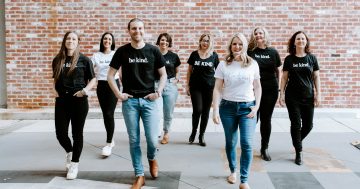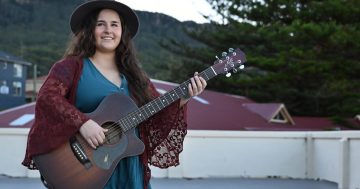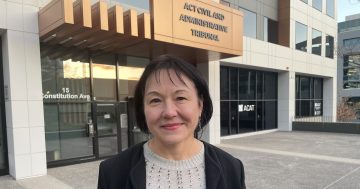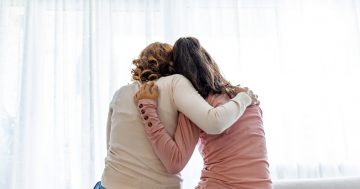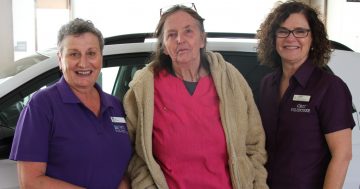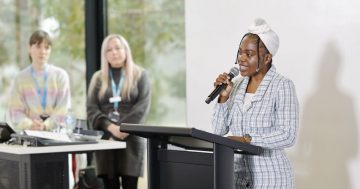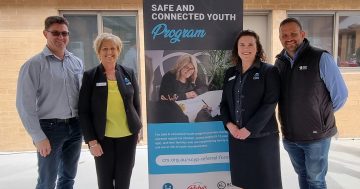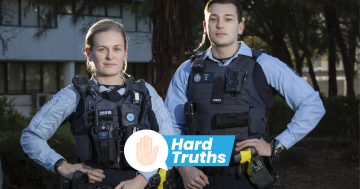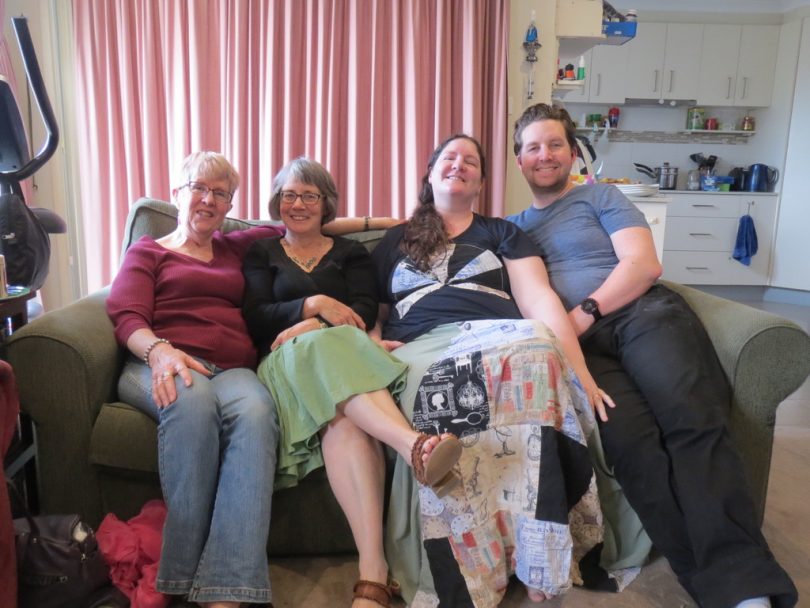
Felicity Banks (second from right) with members of the Castle of Kindness group. Photo: Supplied.
Sometimes it’s the simple things in life that matter most: a dip in a blow-up paddling pool, a BBQ dinner with friends, or a chat about packed lunches, bus routes, and how to deal with Canberra’s dreaded swooping season over coffee.
It’s in these ways, and many more, that the members of Castle of Kindness show tangible support to some of the newest members to the community: refugee families.
Group member Felicity Banks describes their work as providing practical, holistic support to refugee families in the ACT. It’s a kind of pilot program of refugee mentorship to see if a more official sponsorship program – such as those in New Zealand, UK and Canada – could also work here.
Felicity says one of the most beautiful things about refugee mentorship is that mentors can sometimes do things that traditional support organisations simply cannot.
One example she gives is of an extremely shy child in the first family the group encountered, who, upon jumping in the paddling pool in the garden, quickly emerged from his shell, laughing with the other kids. “It’s good for his English, but isn’t embarrassing or difficult,” says Felicity.
Other tasks the group can often help with include the kinds of things an extended family might do for one another – helping with driving lessons, moving house, or showing them how to deal with Canberra’s dreaded swooping magpies.
Another aspect is helping connect adults with people who can link them to employment or training in their desired career areas. Felicity says one mother they met had poor English so they found her a job with a bilingual boss to ensure the transition to working life went smoothly.
Although there are rules and policies, a large part of the program is simply spending time mixing with refugee families. After all, says Felicity, no time spent with friends is ever wasted.
She’s also a big believer in the power of food to connect people so she tries to organise a shared meal each week.
Her children, aged six and eight, are also heavily involved with the group, and despite some initial reservations, both think it’s fun getting to know newcomers. They’re even picking up some new language skills along the way.
That’s not to say it’s all smooth sailing – there are cultural and linguistic hurdles to overcome. Felicity says one cultural difference is that despite our seemingly easygoing Aussie way, we expect people to show up on time, or at least message to say they’ll be late. Sometimes, she says, they have to explain various customs, otherwise it’s a process of adapting and understanding on both sides.
Sometimes, of course, families won’t click with one another, and it is for this reason there is a six-month timeframe for the official program. But there is no obligation to end the relationship at this point.
Felicity says it’s now a family affair, with her children, mum and friends all getting involved.
Helping refugees has been a long-held ambition for Felicity, and she originally planned to work as an overseas aid worker. She worked on this goal for more than a decade, even becoming fluent in Bahasa from her studies and travels to Indonesia.
However, she says in the end, the comforts of home and staying close to her family tempted her to stay here.
This didn’t mean her passion went away, rather it went onto the backburner for a while before she realised helping refugees settle into Australia was equally as important as helping them overseas.
Eventually, the goal is for the mentorship pilot initiative to become an official sponsorship program which would mean sponsors would be expected to cover some financial and logistical aspects of refugees’ journeys to Australia – including, for example, airfares and income support as they get settled in.
Felicity says Canberrans who may be interested in the program can contact her directly by email, or donate to the initiative at its GoFundMe page.











